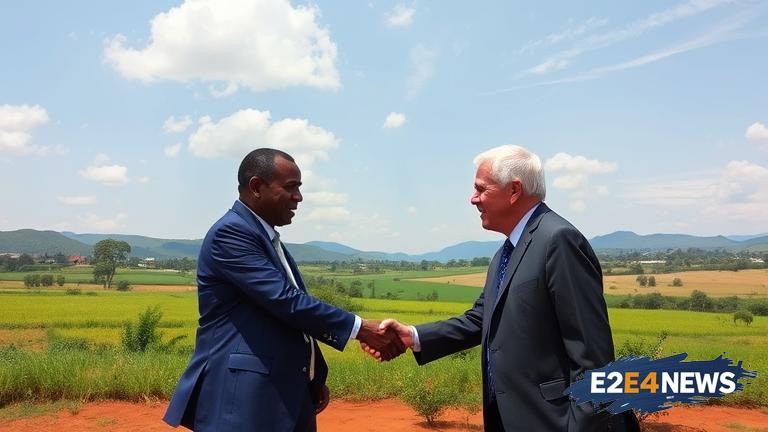In a groundbreaking move, the government of Rwanda has announced that it has reached an agreement with the United States to take in up to 250 migrants. This deal is part of a broader effort by the US to relocate asylum seekers to other countries while their claims are being processed. The agreement has sparked both praise and criticism, with some hailing it as a innovative solution to the global migration crisis, while others have raised concerns about the potential human rights implications. The migrants in question are primarily from Central and South America, and have been seeking asylum in the US. However, due to the backlog of cases and the complexities of the US asylum system, many have been left in limbo, waiting for their claims to be processed. Rwanda, with its relatively stable economy and political system, has emerged as a key partner for the US in this endeavor. The East African nation has a long history of accepting refugees and has been praised for its generosity and hospitality towards those fleeing conflict and persecution. The migrants will be relocated to Rwanda, where they will be provided with shelter, food, and other essential services while their asylum claims are being processed. The US has committed to providing financial and logistical support to Rwanda to facilitate the relocation process. The agreement has been welcomed by some as a pragmatic solution to the migration crisis, which has seen thousands of people attempting to cross the US-Mexico border in recent years. However, others have raised concerns about the potential risks and challenges associated with relocating migrants to a third country. There are also questions about the long-term viability of this approach, and whether it will ultimately provide a durable solution for the migrants involved. The deal has also sparked debate about the role of the US in the global migration crisis, and whether it is doing enough to address the root causes of migration. Some have argued that the US should be doing more to address the push factors that drive migration, such as poverty, violence, and lack of economic opportunities. Others have praised the US for taking a proactive approach to addressing the crisis, and for seeking innovative solutions to the complex challenges involved. The agreement with Rwanda is part of a broader effort by the US to develop new approaches to migration, and to work with other countries to find solutions that are both humane and effective. The US has also been working with other countries in the region, such as Mexico and Guatemala, to develop new strategies for managing migration. The deal with Rwanda has also highlighted the importance of international cooperation in addressing the migration crisis. The agreement demonstrates that countries can work together to find solutions that benefit both the migrants and the host countries. However, it also underscores the need for careful planning, coordination, and monitoring to ensure that the rights and dignity of the migrants are protected. The relocation process is expected to be complex and challenging, and will require careful management to ensure that the migrants are treated with dignity and respect. The US and Rwanda have committed to working closely together to ensure that the relocation process is smooth and successful. The agreement has also sparked interest and debate among other countries, which are watching the development with interest. Some have praised the innovative approach, while others have raised concerns about the potential implications for their own migration policies. The deal has also highlighted the need for greater international cooperation and coordination on migration issues. The migration crisis is a global challenge that requires a global response, and the agreement between the US and Rwanda demonstrates that countries can work together to find solutions. However, it also underscores the need for careful consideration of the potential risks and challenges involved, and for a commitment to protecting the rights and dignity of the migrants. The US and Rwanda have taken an important step forward in addressing the migration crisis, but much work remains to be done to ensure that the relocation process is successful and sustainable. The international community will be watching the development with interest, and will be looking for signs of progress and cooperation in the months and years ahead.





